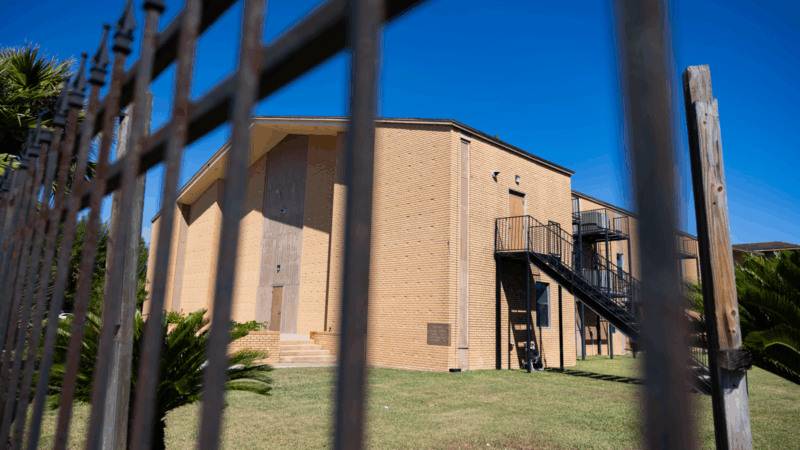Foreign influencers are doing their best to spin the Charlie Kirk assassination
The assassination of Charlie Kirk has been divisive online, and some officials believe foreign governments are trying to make things worse.
“We have bots from Russia, China all over the world that are trying to instill misinformation and encourage violence,” warned Utah Gov. Spencer Cox in a press conference following the shooting last week.
But experts who monitor foreign disinformation campaigns say the picture is more nuanced.
While it’s true that foreign-paid influencers are discussing the shooting, and state-run media outlets are spinning events to fit their narratives – there’s not much evidence those messages are reaching Americans, said Darren Linvill, co-director of the Media Forensics Hub at Clemson University.
The toxic discourse around Kirk’s shooting is primarily home-grown: “I wish it were the Russians,” he said. “It’s not the Russians, it’s us.”
Foreign actors put their own spin on Kirk’s assassination
After Kirk was shot last week, Linvill went online to check in on the feeds of foreign-paid influencers. “Those influencers are absolutely talking about the Kirk assassination,” he said.
People like Chay Bowes, an Irish journalist who works for Russia’s state-run RT news service. In a six-minute video posted to X, Bowes rambled about Kirk’s death while taking shots at British media and the Israeli government, two foes of Russian leadership.
But in the week since it was posted, Bowes’ video gotten a fairly unimpressive 46,000 views. (By contrast, a single video posted the same day by conservative influencer Benny Johnson got more than 780,000 views).
Linvill said at least one Russian network of automated bots also failed to gain traction online, despite posting incendiary false claims about the shooting. He said that’s because foreign influence campaigns often can’t move the needle much on big stories.
“When a single conversation takes up all the oxygen in the room, and everyone on social media is talking about it, the foreign influence can’t really break through,” he said.
But even if they’re not making headway, state-run influence campaigns are still talking about Kirk’s death, added McKenzie Sadeghi, an editor at NewsGuard, a media and misinformation watchdog. She said state-controlled media in Russia, China and Iran have mentioned Kirk’s assassination more than 6,000 times.
Each government gives the story its own spin, Sadeghi said.
“In Russian state media, a lot of the coverage we’ve seen is blaming Ukraine for the assassination,” she said. Iran is pointing the finger at its enemy, Israel. And Chinese state media is using the Kirk story “to sort of mock the U.S. as being unstable and out of control and divided.”
In a post on X, China’s Ministry of Foreign Affairs said “China condemns all unlawful and violent acts,” and denied it was spreading disinformation.
Sadeghi says the messages spread in state media are designed for audiences at home. It’s unlikely that many people in the U.S. are reading what’s written about Kirk on Iranian or Chinese websites.
The U.S. is less equipped than ever to spot malicious actors online
Even as they downplayed the risk of foreign disinformation for this particular event, many researchers warned the U.S. is less equipped than ever to spot malicious actors online. Groups tracking foreign influence at the State Department, FBI, Department of Homeland Security and Office of the Director of National Intelligence have all been disbanded since President Trump took office in January, according to Bret Schafer, a senior fellow at the Alliance for Securing Democracy at the German Marshall Fund of the U.S.
“There’s been a systematic dismantling of every part of the U.S. government that was tasked with countering foreign malign influence,” Schafer said.
Darren Linvill agreed. The defunding of this work “leaves us on the back foot,” he warned.
Pregnant migrant girls are being sent to a Texas shelter flagged as medically risky
Government officials and advocates for the children worry the goal is to concentrate them in Texas, where abortion is banned.
The 2026 World Cup faces big challenges with only 100 days to go
Will Iran compete? Will violence in Mexico flare up? And what about funding for host cities in the U.S.? With only 100 days left before it beings, the 2026 World Cup in North America is facing a lot of uncertainty.
A glimpse of Iran, through the eyes of its artists and journalists
Understanding one of the world's oldest civilizations can't be achieved through a single film or book. But recent works of literature, journalism, music and film by Iranians are a powerful starting point.
Mitski comes undone
She may be indie rock's queen of precisely rendered emotion, but on Mitski's latest album, Nothing's About to Happen to Me, warped perspectives, questionable motives and possible hauntings abound.
This quiet epic is the top-grossing Japanese live action film of all time
The Oscar-nominated Kokuho tells a compelling story about friendship, the weight of history and the torturous road to becoming a star in Japan's Kabuki theater.
The Live Nation trial could reshape the music industry. Here’s what you need to know
On Tuesday opening statements will begin for the federal antitrust trial against Live Nation, one of the largest entertainment companies in the world.








